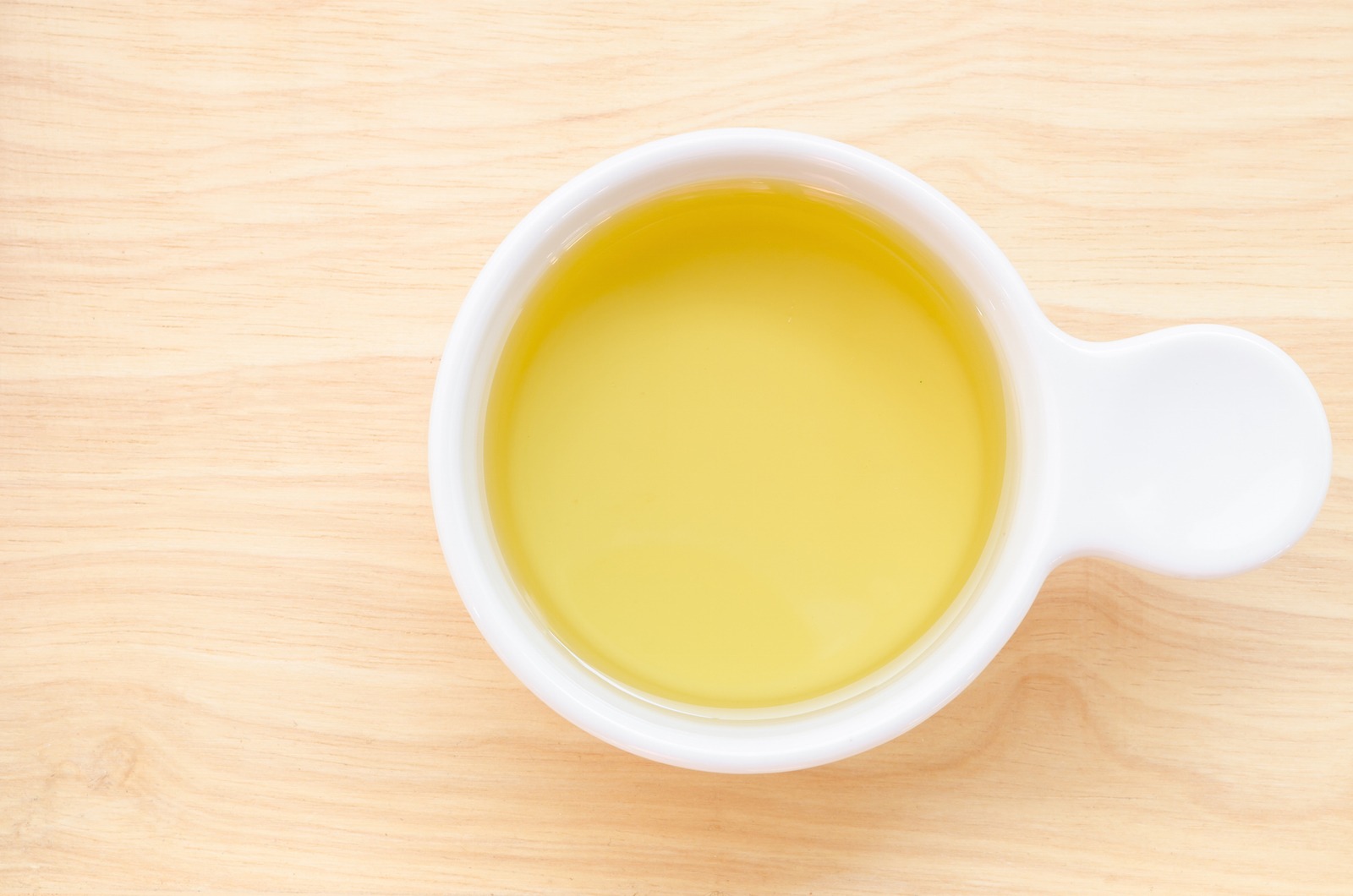 Eat Empowered
Eat Empowered  Healthy Eating Tips
Healthy Eating Tips
Is Canola Oil Bad for You?
Home » Eat Empowered » Is Canola Oil Bad for You?
Ask Keri: Some people say canola oil is bad for you; others say that’s a myth. Help! Can canola be part of a healthy diet?
Keri Says: You’re right: Canola oil is one of those tricky foods that even experts disagree on. A lot of the confusion stems from what I’d say is the main takeaway: In theory, canola oil is not inherently unhealthy and may even have health benefits…but the vast majority of canola oil sold in supermarkets today is not good for you.
How could that be true?
When I evaluate an oil, I can’t just look at the basic nutrition facts related to the main ingredient. As in: olives contain these nutrients, therefore olive oil is healthy. I have to take into account how those olives were grown, how they were turned into oil, how that oil was then processed to make it shelf stable, etc. In other words, a lot can change in the processing.
RELATED: Olive Oil vs. Coconut Oil: Which Is Healthier?
That’s especially true with canola because of how the crop is grown and processed. How much you’re eating and what makes up the rest of your diet also matters. Here’s what you need to know.
Canola Oil: The Crop
Canola is a tallish green plant with pretty yellow flowers. It’s an oilseed crop, meaning the oil comes from the seed rather than fruit. What’s happened to the crop in recent decades is basically identical to what’s happened to soy. In order to grow more canola quickly without worrying about weeds, a genetically modified version of the plant—Roundup-ready canola—was developed so farmers could spray it with Roundup (glyphosate) without killing it. Today, an estimated 90 percent of the canola grown in the US is genetically modified to withstand herbicides.
RELATED: What You Need to Know About the Most Common Pesticides

While there are still no proven health risks related to the process of genetically modifying plants, the fact that it’s modified for this purpose is a problem: It means the plants are being sprayed with a pesticide that’s no good for your body, the bodies of the workers in the fields, or the planet.
Canola Oil: The Fats
Canola oil is mostly made up of monounsaturated and polyunsaturated fats, which generally fall into the healthy fats category. But we’ve got to dig deeper into the polyunsaturated: Canola’s PU fats are made up of about 21 percent omega-6 and 11 percent omega-3.
That 2:1 ratio is technically healthy; everyone needs a balance of omega-6 and omega-3 fats. The issue is that in the standard American diet, most people get way too many of the omega-6, so in foods, we need to skew the ratio towards getting more omega-3s to make up for that fact.
However, if you’re eating a super healthy diet with plenty of fatty fish, this ratio is a-okay.

Canola Oil: Processing
One more complication related to fats: The methods used to process and refine canola oil can mess with the structure of the fats. When canola is partially hydrogenated, it often contains trans fats, which are the worst kind of fats for your body.
Processing also involves a lot of heat, and some animal studies have shown fats from heated canola raised markers of inflammation in rats.
Canola is also often extracted using a chemical process involving hexane, bleached, and deodorized. All of these things further refine the oil, which may decrease nutrients and good fats and increase the presence of trans fats.
Canola Oil: The Bottom Line
At this point, making a stir-fry with canola probably doesn’t sound like such a good idea. But as I said at the beginning, it’s not inherently unhealthy. Skip the supermarket brands but don’t be afraid of canola overall if you can find a good source. Look for organic (or at least non-GMO), unrefined, and cold-pressed, and all of the issues mentioned will fall away. And just be conscious of the omega ratio related to other sources of fats in your diet.
(Photos: Shutterstock)
The Nutritious Life Editors are a team of healthy lifestyle enthusiasts who not only subscribe to — and live! — the 8 Pillars of a Nutritious Life, but also have access to some of the savviest thought leaders in the health and wellness space — including our founder and resident dietitian, Keri Glassman. From the hottest trends in wellness to the latest medical science, we stay on top of it all in order to deliver the info YOU need to live your most nutritious life.
RECENT ARTICLES

Want a sneak peek inside the program?
Get FREE access to some of the core training materials that make up our signature program – Become a Nutrition Coach.
Get Access












































































































































































































































































































































































































































































































































































































































































































































































































































































































































































































































































































































































































































































































































































































































